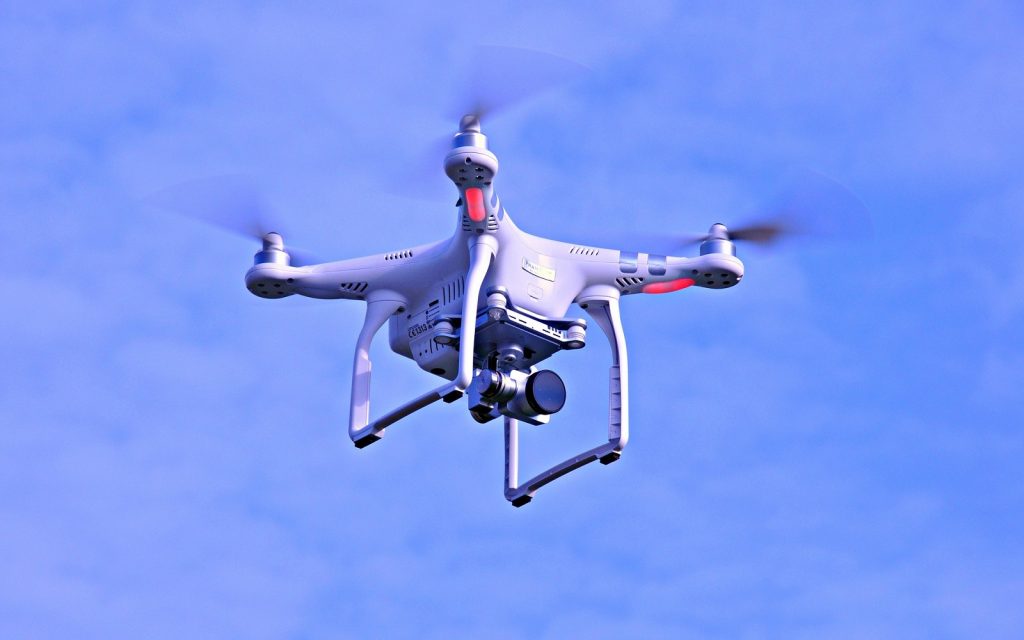Even though the Cold War is over and the romanticised era of Spy vs. Spy is but a distant memory, espionage is far from dead. We’ve just replaced countries that spy on each other with businesses that do it.
Today, a new threat has emerged. Drone spying is a thing thanks to rapid advancements in the tech field and the ever-increasing propensity for humans to be horrible gits in any way they can.
We kid you not.
Understanding the Drone Spying Threat
The recent Kaspersky Business Digitisation survey conducted in the Middle East, Turkiye, and Africa (META) region has shed light on some concerning findings around drones. Yes, those app-controlled flying machines that have revolutionised indie filmmaking are also revolutionising spying.
Corporate spies and hackers increasingly use drones to gather trade secrets, confidential information, and sensitive data from businesses and data centres. These unmanned aerial vehicles can carry devices for hacking into corporate networks, such as smartphones, compact computers like the Raspberry Pi, or signal interceptors like the Wi-Fi Pineapple. Hackers exploit these devices to gain unauthorised access to corporate data and disrupt communications.
What makes drone spying particularly concerning is the ability to access data channels that someone sitting off-site can’t reach. The survey highlights that the highest concern about drone spy threats comes from respondents in the IT, manufacturing, and energy sectors. Apparently, no industry is immune.
South Africa’s Vulnerability
As South Africa continues its digital transformation and more and more businesses switch to some sort of wireless communication, the potential for drone espionage becomes increasingly relevant. Wireless comms, including Wi-Fi, Bluetooth, and RFID, are vulnerable to drone attacks. This means that businesses relying on any sort of wireless technology to transmit sensitive data may be at risk.
Moreover, the survey found that 70% of employees in the META region believe that their companies would benefit from installing drone detection systems to protect against spying. This statistic underscores the growing awareness of the need to defend against this form of cyber espionage, even here in South Africa.
Countering the Threat
Countering the threat of drone espionage requires innovative solutions. One such solution is a counter-drone technology system, which uses a combination of sensors like radars, radio frequency analysers, cameras, lidars, and jammers to detect, classify, and ultimately defeat drones. Putting these systems in place can help protect sensitive data and maintain the integrity of any organisation’s wireless communications, even if it’s a pain to do.
Beyond Drones
While drone spying is a big concern, the survey also revealed that 77% of employees in the META region fear cyber espionage within their industry. South African businesses are no exception to this threat. The consequences of cyber espionage can be severe, including financial losses, intellectual property theft, and damage to reputation that can come from sensitive business information falling into the wrong hands.
Leveraging Threat Intelligence
Threat intelligence plays a crucial role in countering cyber espionage. It provides organisations with actionable insights and proactive measures to monitor their IT systems for signs of espionage-related activities, such as reconnaissance and data exfiltration. This data-driven approach is how cybersecurity teams can detect and block espionage-related attacks in real-time.
Mitigating Espionage Threats
Emad Haffar, Head of Technical Experts at Kaspersky, emphasises the importance of understanding and countering cyber espionage. Kaspersky offers solutions to address traditional and emerging threats, including drone spying. Kaspersky Threat Intelligence provides comprehensive and practical reporting on high-profile cyber espionage campaigns, helping organisations stay informed and vigilant.
To protect against espionage and drone spying, Kaspersky recommends:
- Regular Software Updates: Keeping corporate IT systems and drivers up to date to patch vulnerabilities.
- Threat Intelligence Evaluation: Using services like Kaspersky Threat Intelligence to assess digital system risks.
- Employee Education: Educating employees to minimise the risk of targeted phishing attacks through platforms like Kaspersky Automated Security Awareness.
- Comprehensive Cybersecurity Solutions: Deploying all-in-one solutions like Kaspersky Anti Targeted Attack (KATA) Platform. Of course they’d recommend this. They have a business to run.
- Outsourcing Cybersecurity Supervision: Leveraging Kaspersky Managed Detection and Response (MDR) for additional protection and expertise.
- Drone Detection: Utilising Kaspersky Antidrone to counter the threat of spying from the air.
The South African Imperative
As South African businesses continue to digitise and rely on wireless technologies, the risk of espionage, including drone spying, becomes a major concern. To safeguard sensitive data, intellectual property, and reputation, businesses in South Africa must prioritise cybersecurity measures and stay vigilant against evolving espionage threats.
The findings from the Kaspersky survey serve as a stark reminder that the digital age demands proactive and comprehensive defenses against all forms of cyber espionage, including, now, those from the skies.
Thanks, humanity, we are once again putting awesome inventions to the very worst possible use. Aren’t we great?
Image by Mabel Amber from Pixabay




